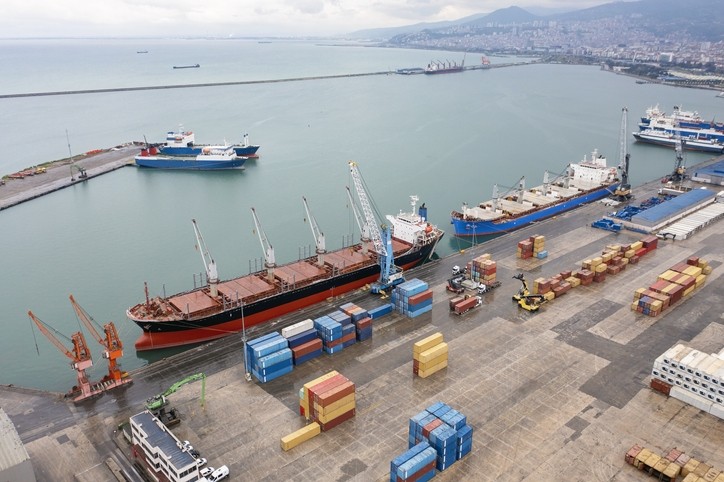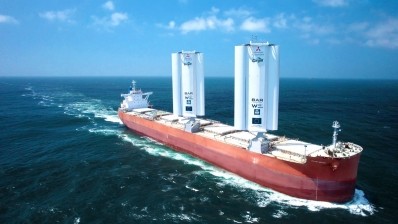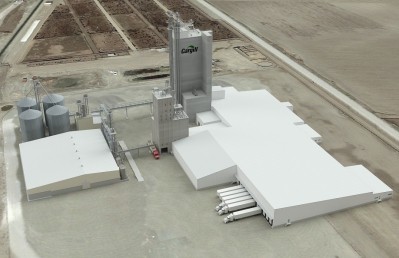Cargill looks to wind power to help decarbonize its shipping

Shipping, while essential for trade, contributes significantly to the emissions that cause climate change. Global shipping spews out 3% of worldwide greenhouse gases (GHG). With the maritime industry responsible for transporting no less than 90% of world commerce, there is increasing pressure on the sector to reduce its carbon footprint swiftly.
Cargill will evaluate a dry bulk vessel with two wind sails carrying cargo onboard later this year, Jan Dieleman, president of the group's ocean transportation division, told Reuters.
The ship will go into dry dock to mount the sails in the coming weeks. "The performance of the sails will be closely monitored to further improve their design, operation, and performance," he said.
Wind technology partnership
Last summer, Cargill and a raft of partners - MC Shipping, BAR Technologies and Yara Marine - announced that they were working together to bridge the gap between shipowner and charterer, with a desire to implement technologies that would benefit not just both parties, but the industry and the planet at large.
In June 2022, the collaborators reported that Mitsubishi Corporation’s Pyxis Ocean, which Cargill charters, would undergo installation and deployment in the first half of 2023 with BAR Tech’s wind propulsion technology, WindWings, delivered by Yara Marine.
“Collaboration across the maritime supply chain is critical for the effective deployment of emissions reduction solutions,” said Dieleman then.
The project is being partly funded by the EU Horizon 2020 Project, CHEK, which is dedicated to demonstrating solutions for decarbonizing international shipping.
The companies invovled said the industry is in dire need of retrofit solutions capable of decarbonizing existing ships, alongside the research and development of future sources of clean fuel such as renewable gases and hydrogen, and that, at five years old, the Pyxis Ocean, a bulk carrier, represents the challenges the energy transition poses to the global fleet.
“The pressure is on the ship owning and chartering community to take proactive and material action to tackle the immediate and uprising challenges towards the energy transition on its existing vessels, and fast,” according to Takafumi Oka, who manages the shipping department of Mitsubishi Corporation.
“Our partnership with Cargill demonstrates the collaborative effort that is required to align strategic objectives among the stakeholders and ensure the global fleet can keep pace with evolving demands to reduce the environmental impact of our industry.”
John Cooper, CEO of BAR Technologies, said that Cargill and MC Shipping’s WindWings installation demonstrates a step change in attitudes towards technologies as a means of enabling the energy transition for existing vessels.
"Reductions in fuel consumption via the exploitation of wind energy as a free fuel generates the two-fold benefits of lower fuel costs and lower emissions, propelling the global fleet affordably on its track to decarbonization. With projected reductions in average fuel consumption of up to 30% for a full-scale deployment, we anticipate that WindWings will significantly outperform its contemporaries in the wind propulsion arena.”
Targeting shipping linked emissions
The International Maritime Organization, the UN agency that regulates air pollution from shipping, has adopted mandatory measures to reduce GHG.
From January this year, vessels over 400 gross tons must meet certain energy efficiencies, and most shipowners will need to implement technical measures, so their emissions comply with the required levels. Vessels will need to meet that standard to continue trading globally.








